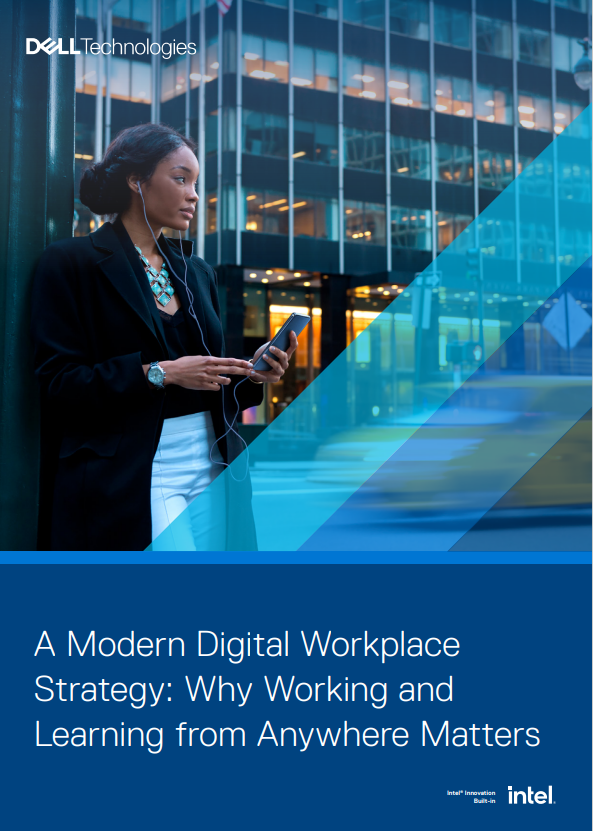Red Hat adopts a remote-first policy, with offices turned into "neighbourhoods"
Software giant puts more emphasis on collaboration with redesigned office spaces


Open source giant Red Hat has revealed that its staff can come into the office as many times as they like, or work from home indefinitely.
If they choose to return to the office, however, employees will find a redesigned space and collaborative "neighbourhoods" awaiting them, according to chief people office Jennifer Dudeck.
More than 30% of Red Hat staff worked remotely before the pandemic, Dudeck wrote in a blog post. However, the software provider is expanding that flexibility to offer its employees the freedom to be 'office-flex' and choose the amount of time they spend in the office. Senior leaders, though, are still encouraged to work from one of the company's offices to "interact and learn more", Dudeck said.
One of the reasons for expanding the remote work policy, according to Dudeck, is to take away the limits of location. This allows the company to find and attract diverse talent. It also helps its current employees manage their lives better.
However, Dudeck included a section in the blog post that details the changes the company is making to its office spaces and, more importantly, its culture. Under the subhead, "the office is a vibe", Dudeck explains that its work areas need to be more than simply places of work.
RELATED RESOURCE

"With the majority of our associates having the flexibility to decide when they would like to use the office, we realised it needed to be a place where associates can connect to Red Hat's culture, collaborate and engage more fully," Dudeck wrote. "Simply put, if associates are not going to the office all of the time, it's even more important that it's fun, functional and enjoyable when they do."
One of the first changes is "neighbourhoods" which will be spaces where teams gather to work; these will have fewer desks and more booths, sofas and small collaboration spaces, according to Dudeck. There will also be an "open decision hub" which will act as a central place for staff to participate in decisions, voice opinions, conduct surveys and monitor how well company decisions have gone.
Get the ITPro daily newsletter
Sign up today and you will receive a free copy of our Future Focus 2025 report - the leading guidance on AI, cybersecurity and other IT challenges as per 700+ senior executives
"Looking at the Open Decision Hub, associates can see which leaders are driving an issue, what is open for feedback (and what's not) and where we are in the decision process."
Red Hat's approach to hybrid work appears to be as full-on as Salesforce, which announced an end to the 9-to-5 last year. Both, however, are in stark contrast to other tech giants, like Apple, Microsoft and Google, which have all settled on three-day remote working weeks.
Bobby Hellard is ITPro's Reviews Editor and has worked on CloudPro and ChannelPro since 2018. In his time at ITPro, Bobby has covered stories for all the major technology companies, such as Apple, Microsoft, Amazon and Facebook, and regularly attends industry-leading events such as AWS Re:Invent and Google Cloud Next.
Bobby mainly covers hardware reviews, but you will also recognize him as the face of many of our video reviews of laptops and smartphones.
-
 IT professionals aren’t budging on flexible work demands – and more than half say they’ll quit if employers don’t meet expectations
IT professionals aren’t budging on flexible work demands – and more than half say they’ll quit if employers don’t meet expectationsNews Analysis from Randstad shows 40% of UK-based IT pros have quit over a lack of flexible work options, while 31% of workers globally have done the same.
By Ross Kelly
-
 'The tide seems to be turning towards office attendance': 64% of hybrid business leaders want staff back in the office – but many worry that enforcing RTO mandates will drive employees away
'The tide seems to be turning towards office attendance': 64% of hybrid business leaders want staff back in the office – but many worry that enforcing RTO mandates will drive employees awayAnalysis Many UK business leaders want their staff back in the office more frequently, but they’re scared to implement return to office (RTO) mandates in fear of worker revolts.
By George Fitzmaurice
-
 Employees are dead set on flexible working arrangements – three quarters would turn down a role that didn't offer hybrid options as work-life balance becomes more important than pay
Employees are dead set on flexible working arrangements – three quarters would turn down a role that didn't offer hybrid options as work-life balance becomes more important than payNews New research shows workers are increasingly demanding flexible working arrangements from employers.
By Emma Woollacott
-
 Nearly half of tech workers are seeking new roles – declining employee benefits and reduced flexible working options have staff looking elsewhere
Nearly half of tech workers are seeking new roles – declining employee benefits and reduced flexible working options have staff looking elsewhereNews While salaries are rising for tech workers, other benefits are in decline, leading to a fall in job satisfaction
By Emma Woollacott
-
 Untethered: How CIOs and CISOs are paving the way for the new hybrid workforce
Untethered: How CIOs and CISOs are paving the way for the new hybrid workforceWhitepaper Effective techniques to transition from exposed legacy infrastructure to an effective zero trust strategy
By ITPro
-
 Unified endpoint management and security in a work-from-anywhere world
Unified endpoint management and security in a work-from-anywhere worldWhitepaper Learn how to converge endpoint management and security processes and systems to drive efficiency and reduce risk
By ITPro
-
 Why flexible working is critical to ensure talent retention
Why flexible working is critical to ensure talent retentionAdvertorial The changing face of flexible working will be the focal point of a webinar hosted by the Achievers Workforce Institute on July 12
By ITPro
-
 Hybrid work means we’re burning out harder and faster than ever
Hybrid work means we’re burning out harder and faster than everIn-depth Technology has fueled an always-on culture that’s turbocharged a new breed of burnout, but technology can also come to the rescue
By Sandra Vogel

